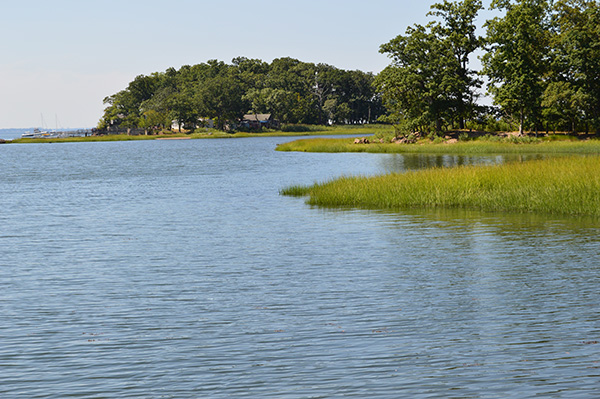
Larchmont, NY — Thirty-three days after the original deadline, Save the Sound is pleased that the $229 billion New York State budget for Fiscal Year 2024 passed late Tuesday night includes the continuation of significant environmental investments, a promising development for Suffolk County, and one ground-breaking energy policy.
Funding will remain at last year’s record levels for both the Clean Water Infrastructure Act ($500 million) and the Environmental Protection Fund ($400 million – without incurring any agency staffing costs).
One key new inclusion is a provision allowing Suffolk County to approve a November referendum, empowering local voters to determine whether to enact a 1/8-cent county sales tax increase that would fund the creation of a unified wastewater management district. Much of the county is not currently connected to a sewer system; instead, most homes and businesses utilize septic systems or cesspools, through which wastewater seeps into the groundwater and eventually into Long Island Sound. A unified district can help to protect both human health and the Sound’s ecosystems through management practices that reduce water pollution.
“We are pleased to see the state of New York continue its commitment to clean water infrastructure, providing communities the funding necessary to address the escalating challenges of wastewater and stormwater pollution and enhancing climate change resiliency across the region,” said David Ansel, vice president of water protection for Save the Sound. “This funding, combined with the Environmental Bond Act, puts us in a stronger position than ever to protect and restore the waters of Long Island Sound and its rivers and tributaries. Now that the budget has passed, we ask our legislators to turn their attention to other bills that will help prepare our communities for the future, including through use of living shorelines and other resiliency measures.”
The budget also provides funding for state environmental agencies to increase staffing levels, including the Department of Environmental Conservation and 265 roles across multiple agencies to implement the $4.2 billion Bond Act.
One of the most important environmental components of the budget establishes zero-emission requirements for all new building construction, starting in 2026 for buildings under seven stories and in 2029 for taller buildings. The All-Electric Building Act is the first legislation of its kind in the country, and a vital step toward New York’s commitment to reduce emissions by 40 percent of 1990 levels by 2030 and 85 percent by 2050.
“Air pollution from the building sector exacerbates climate change and disproportionately impacts low-income communities and communities of color. By including in the budget package requirements for zero-carbon buildings, Governor Hochul and the New York legislature are taking positive steps toward helping New York State transition away from fossil fuels,” said Alex Rodriguez, environmental justice specialist, Save the Sound. “Unfortunately, the NY HEAT Act was not included in the budget. Inclusion of the Act would eliminate billions of dollars in subsidies for new gas hookups, enable neighborhood-scale building decarbonization, and ensure energy affordability for low- and moderate-income families. We join our allies from the Renewable Heat Now campaign in calling on Gov. Hochul and the legislature to pass the NY HEAT Act this session.”
